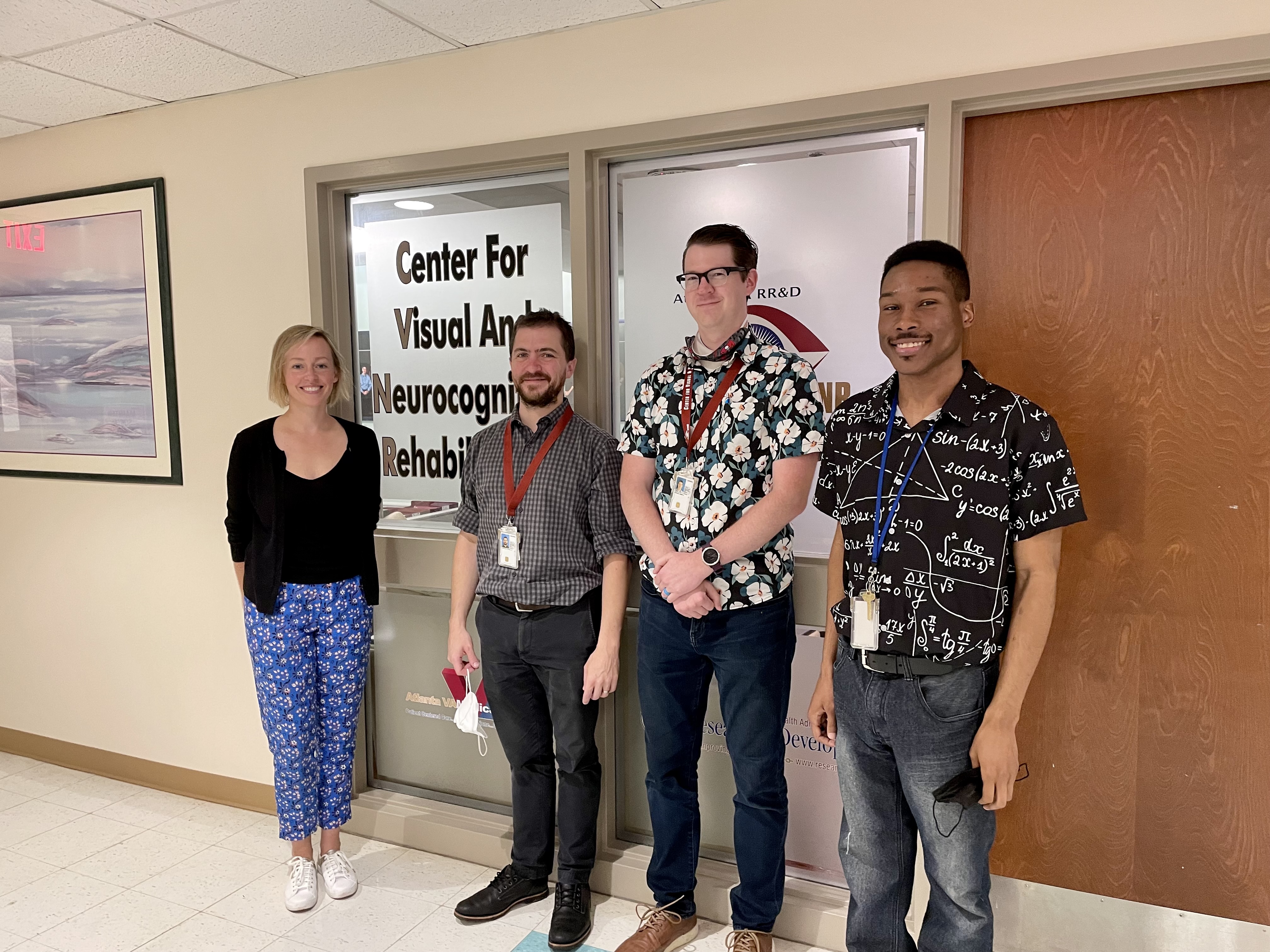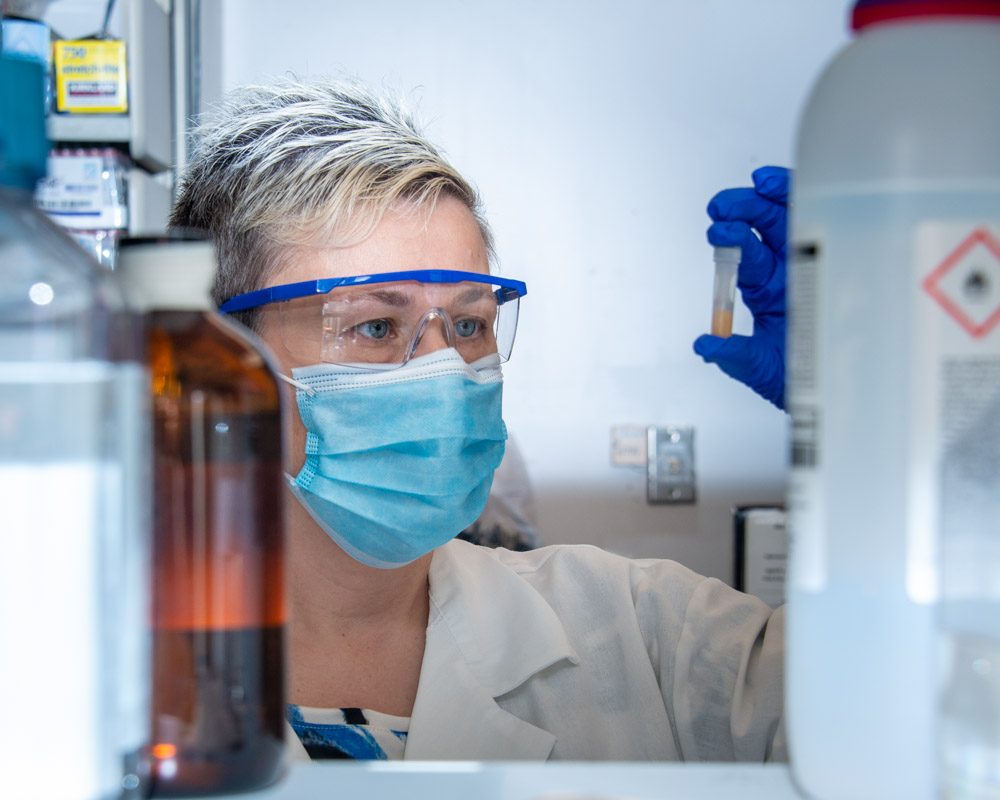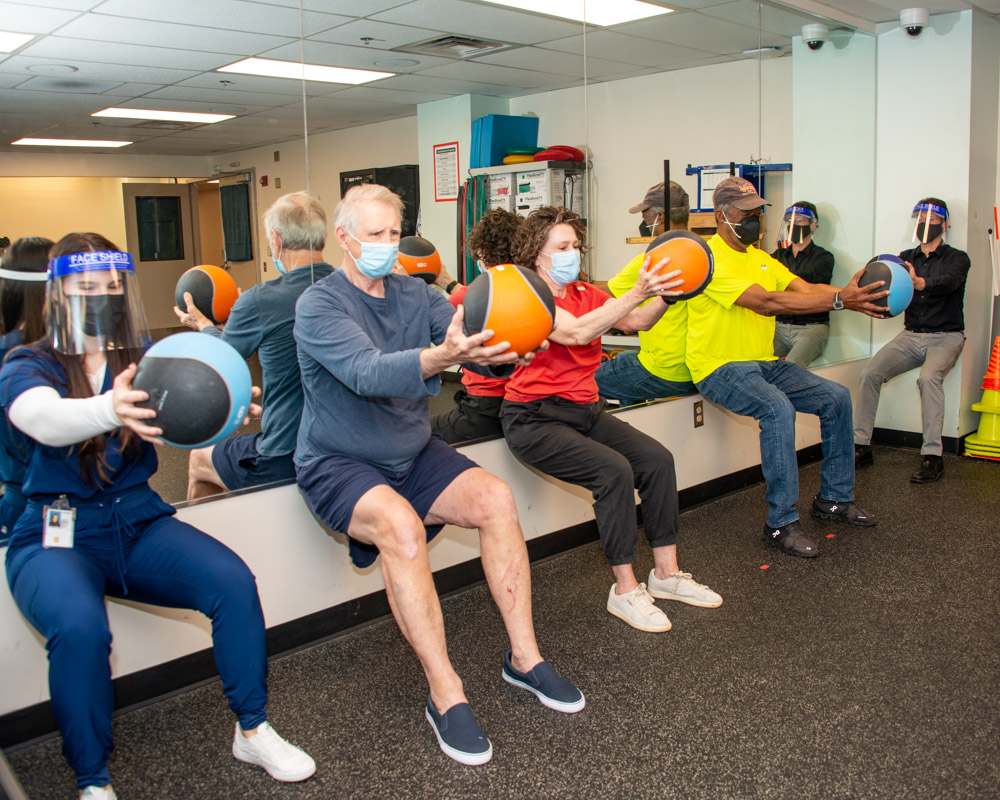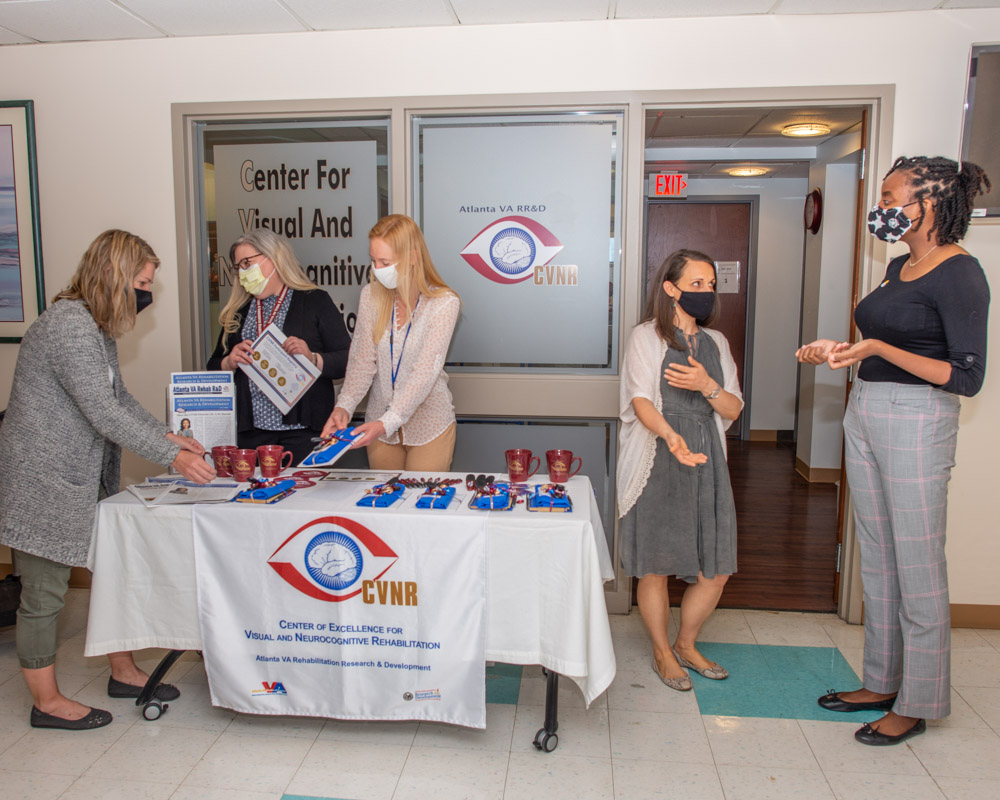CVNR Cores
Neuroimaging Core
The Neuroimaging Core's (NIC) mission is to facilitate CVNR investigator rehabilitation research involving brain structure and function through assistance in study planning, data acquisition, data storage and analysis, as well as dissemination of results. In collaboration with the Translational Research in Neuroimaging and Data Science (TReNDS) Center at Georgia State University, the NIC utilizes state of the art neuroimaging techniques and technologies to allow investigators to explore in vivo human brain activity, neurophysiology, neurochemistry, and structural changes induced by brain injury or disease. These endeavors will facilitate the development of principled rehabilitation interventions and individualized rehabilitation methodologies for our nations’ veterans and the general public.
Neuroimaging Core resources available to CVNR investigators:
Three processing servers each configured with 128 cores, 768 GB of RAM, and dual Nvidia A2 GPUs, loaded with industry-standard image analysis tools, for powerful processing of large datasets common in neuroimaging projects; a 92 TB RAID 6-configured redundant data storage server with daily snapshot backups to ensure data security and integrity; as well as analysts and IT professionals who can provide technical support to investigators and their teams as they begin collecting and processing data. The neuroimaging lab at the CVNR is a 400 sq. ft space equipped with large display workstations setup to provide remote desktop access to NIC processing servers and provide investigator teams with the tools necessary to answer complex neurological research questions.
The NIC also maintains a Compumedics neuroscan synampsrt 128 channel electroencephalograph (EEG) equipped with a piezoelectric stimulation system; which is available for VA investigators.
For neuroimaging tutorials, guides, and scripts please check the following CVNR/NIC GitHub link
NIC Director: TBD
NIC Manager: Mark Vernon, CVNR Manager of Neuroimaging Core
Molecular Biology Core
The Molecular Biology Core (MBC) provides CVNR investigators with the tools, expertise, training, and other support needed to test mechanistic hypotheses in their human, animal, or cell culture studies. Most often this is in the form of identification and measurement of circulating factors that underlie or mark physiological responses to experimental manipulations in animal or human studies. The MBC facilitates ongoing projects with biomolecular analysis and provides resources for centralizing and standardizing sample storage, analysis, and tracking. The MBC also assists in the development of new projects by advising investigators in early grant proposal stages. The MBC provides a critical service of coordinating participants, study staff, and nurses for blood collection from human subjects. Thus, regardless of study, investigator, or project, each of our study participants experiences a safe, smooth, professional process. After collection of the blood sample, the MBC ensures that they are processed, stored, and assayed in a timely and uniform fashion. Their work helps identify and determine biomarkers as both interventional targets and as quantitative measures of change in the research conducted by colleagues.
MBC Director: Jeffrey Boatright, CVNR Director Molecular Biology Core
MBC Manager: Monica Coulter, CVNR Manager of Molecular Biology Core
Administrative Core
The CVNR's Administrative Core (AC) works to facilitate all the tremendous work being done by the CVNR PIs as they work to acquire more knowledge and develop treatments for veterans. The AC is integral to coordinating and executing the Center's research activities, goals, communications, and future directions. The AC manages all daily operations of the Center and works to anticipate the needs of the Center and its PIs. These services include assistance with grant management, grant submission, budgeting, human resources, contracting, human compliance assistance, inventory, payroll, & coordinating CVNR activities and meetings. The AC also works to integrate the changing procedures and policies within the VA as well as serve as the liaisons to the medical center and VA Central Office.
AC Director: Lisa Calas, CVNR Administrative Officer
Physical Exercise Core
The Physical Exercise Core (PEC) employs creative approaches and extensive skill sets to advance the understanding of the mechanisms involved in exercise-induced change in function and disseminate evidence-based rehabilitative interventions. The PEC supports interventions in populations including aging Veterans, Parkinson’s disease, mild cognitive impairment, chronic kidney disease, stroke, and age-related macular degeneration. Exercise interventions presently utilized include, 1) an aerobic, interval-based ‘Spin’ cycling intervention, 2) a circuit-based, aerobic full-body strength and conditioning program and 3) a low-intensity, full body stretching and balance intervention. As well as pursuing evidence and scientific-based rehabilitation, disease-mitigation, and outreach goals, unique collaborations with the molecular biology and neuroimaging cores foster the scientific advancement of the physiological and cognitive changes that occur due to ageing and/or disease. This teamwork has shown across numerous studies that exercise can induce structural, metabolic, and cognitive changes within the human brain in as little as 3 months. It has also partnered with its the Geriatric Rehabilitation, Education and Clinical Center (GRECC), to bring the highly successful Gerofit program to the Atlanta VA Healthcare System, which offers a unique opportunity for our Veterans to receive exercise programs based on individual ability. The PEC is primed to continue to work with collaborators and offer extensive resources in the scientific pursuit of inquiries involving the impact and benefits of exercise-based interventions for a multitude of populations while simultaneously serving as a conduit for targeted Veteran outreach.
PEC Director: Joe Nocera, CVNR Director of Physical Exercise Core
PEC Manager: Kevin Mammino, CVNR Core Manager of Physical Exercise Core
Connectivity Core
The Connectivity Core (CC) was established to promote engagement, foster implementation, and disseminate research to stakeholders, including Veterans, investigators, clinicians, and the rehabilitation community. It achieves this mission through promoting engagement in research design, implementation and participation, fostering the implementation of rehabilitation research findings in patient-centered care, and translating and disseminating rehabilitation research findings to support Veterans health and quality of life. The CC underscores our commitment to growing and adapting as needs present and to establishing meaningful connections with our Veterans and transforming their care through translation of our science within the VA and the broader community. The CC sponsor CVNR’s Community Advisory Panel made up of research stakeholders, including research study participants, representatives from local organizations, clinical partners in the community, and Atlanta VA staff. The purpose of the Community Advisory Panel is to “engage, influence and direct” by providing feedback on CVNR research programs, promoting awareness of CVNR research, and increasing community interest in CVNR research participation. The CC also sponsors the CVNR Participant Registry, which provides an opportunity for members of the community to receive current information about CVNR activities and to participate in research. Click herefor more information about our active research studies
CC Director: Amy Rodriguez, CVNR Director of Connectivity Core
CC Manager: Alexandra Mayes, CVNR Manager of Connectivity Core





